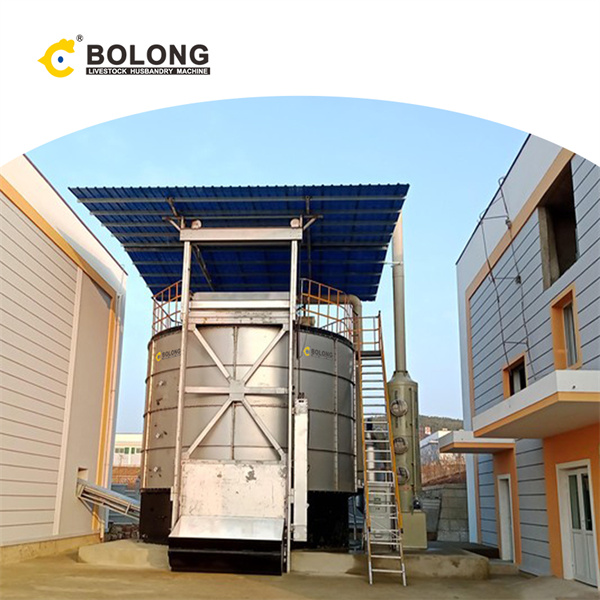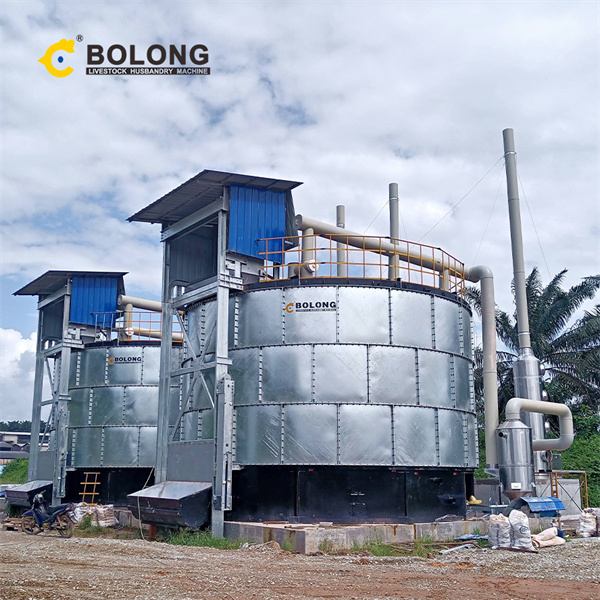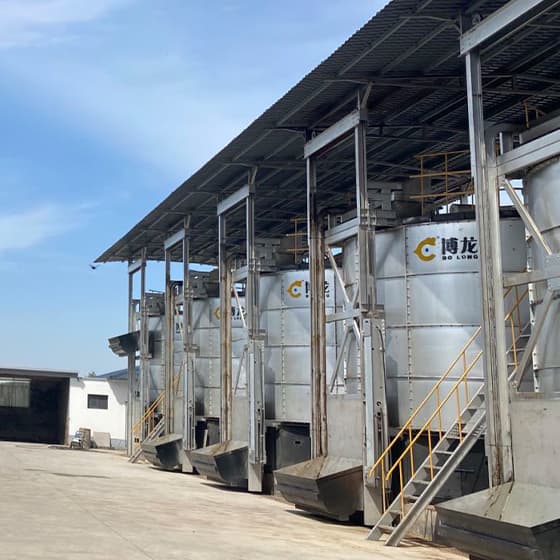With the global sustainable development of agriculture and the continuous improvement of environmental awareness, resource recovery and waste treatment have become the focus of social concern. In this context, the combination of organic fertilizer composting machine and biodegradation technology has become an effective solution, which can not only realize the resourceful use of organic waste, but also improve the quality of organic fertilizer, reduce environmental pollution, and promote the dual sustainable development of agriculture and the environment.
Organic fertilizer composting machine is a device used to accelerate the conversion of organic waste into organic fertilizer, usually through the control of temperature, humidity, aeration and other factors, to provide the most suitable environment for the growth of microorganisms, to accelerate the decomposition process of organic matter. During the fermentation process, microorganisms break down the organic components in the waste into simpler compounds through their metabolic action, which are eventually converted into organic fertilizers.
Organic fertilizer composting machines are usually classified into anaerobic fermentation, aerobic fermentation, and mixed fermentation according to different fermentation methods and technologies. In aerobic fermentation, microorganisms produce carbon dioxide and water by consuming carbon, nitrogen and other elements in the waste, while releasing heat to raise the fermentation temperature. And in anaerobic fermentation, microorganisms decompose organic matter under anoxic conditions to produce gases such as methane. These biological processes are not only the key to the production of fertilizers, but also able to reduce the emission of waste gases through proper control to avoid negative impacts on the environment.

Biodegradation technology refers to the process of converting organic waste into simple and harmless substances through the action of microorganisms, plants, enzymes and other organisms. This technology plays an important role in waste treatment, resource recovery and environmental protection. In the field of agriculture, biodegradation technology is widely used in the treatment of farmland waste, kitchen waste, livestock and poultry manure, etc. It not only helps to reduce the amount of waste, but also produces fertilizer through biological transformation and improves the fertility of the land.
Biodegradation technology mainly includes the following ways:
Under sufficient supply of oxygen, microorganisms decompose organic matter and generate carbon dioxide and water. It is suitable for the degradation of most organic wastes.
In the anaerobic environment, microbial decomposition of organic matter, generating methane and other gases. Commonly used in the treatment of organic waste is rich in places, such as landfills.
Through the accumulation of biological waste, the use of microorganisms in a warm, moist environment to decompose waste, the production of organic fertilizer.

The combination of organic fertilizer composting machine and biodegradation technology can improve the processing efficiency of organic waste and produce high-quality organic fertilizer. Specifically, the combination of the two is mainly reflected in the following aspects:
By combining the anaerobic or aerobic fermentation process in biodegradation technology, the composting machine can accelerate the decomposition of organic waste and reduce the emission of harmful gases. Especially in the aerobic fermentation process, microorganisms through the efficient decomposition of organic components in the waste, can greatly improve the efficiency of the composting machine, and at the same time converted into fertilizer when the temperature released to help control the growth of pathogenic microorganisms, reduce the residual harmful substances.
Biodegradation technology not only accelerate the degradation of waste through the role of microorganisms, but also optimize the quality of fertilizer. In the organic fertilizer composting machine, through the introduction of specific beneficial microbial strains (such as composting bacteria, nitrogen-fixing bacteria, etc.), can be in the decomposition of waste at the same time, to enhance the content of nitrogen, phosphorus, potassium and other nutrients in the fertilizer, and to promote the recovery of soil fertility. In addition, the increased activity of microorganisms can also improve soil biodiversity and soil structure.
In the traditional waste treatment process, a large amount of harmful gases (e.g. ammonia, methane, etc.) are often produced, polluting the air and water. And through the combination of organic fertilizer composting machine and biodegradation technology, the emission of harmful gases can be effectively reduced. For example, the microorganisms in the composting machine can decompose the harmful components in the waste into harmless substances through the aerobic fermentation process, reducing the production of greenhouse gases. In addition, the organic fertilizer produced during the fermentation process can be used in agricultural production, further realizing the recycling of resources.
The addition of biodegradation technology can enable organic waste to be decomposed and transformed more quickly in the composting machine. For example, by controlling the temperature and humidity so that the microorganisms are in the most suitable growth environment, the degradation process of waste can be completed in a shorter period of time, thus shortening the fertilizer production cycle. In addition, the utilization of highly efficient microbial strains and aerobic fermentation technology can further improve the waste treatment capacity and reduce the floor space.

The combination of organic fertilizer composting machine and biodegradation technology is an important means to achieve waste resource utilization and promote sustainable agricultural development. By optimizing the microbial fermentation process, improving the quality of fertilizer, reducing environmental pollution and other measures, it can not only enhance the economic benefits of agricultural production, but also promote the protection of the ecological environment. With the continuous progress of science and technology and the continuous improvement of technology, in the future this combination will bring more development potential for more agricultural, environmental protection and resource management areas.